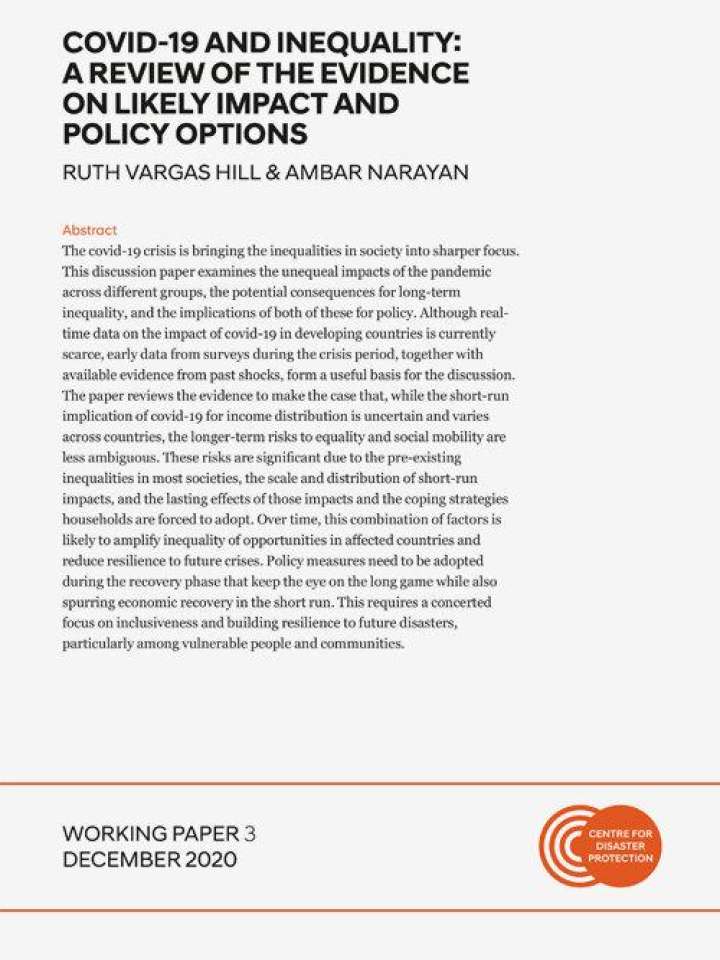COVID-19 and inequality: A review of the evidence on likely impact and policy options
This discussion paper examines the unequeal impacts of the pandemic across different groups, the potential consequences for long-term inequality, and the implications of both of these for policy. The paper reviews the evidence to make the case that, while the short-run implication of covid-19 for income distribution is uncertain and varies across countries, the longer-term risks to equality and social mobility are less ambiguous.
These risks are significant due to the pre-existing inequalities in most societies, the scale and distribution of short-run impacts, and the lasting effects of those impacts and the coping strategies households are forced to adopt. Over time, this combination of factors is likely to amplify inequality of opportunities in affected countries and reduce resilience to future crises. Policy measures need to be adopted during the recovery phase that keep the eye on the long game while also spurring economic recovery in the short run. This requires a concerted focus on inclusiveness and building resilience to future disasters, particularly among vulnerable people and communities.
Explore further
